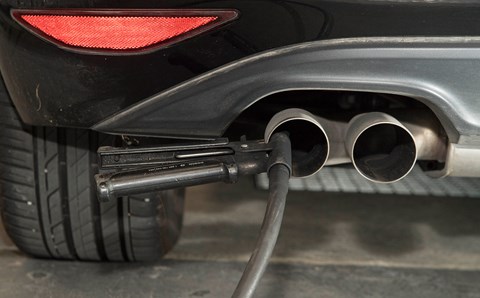► Society’s latest contradiction
► Why buyers lap up heavy SUVs…
► … Yet also love to go on fad diets
I’ve been doing the 5:2 diet for two years now, because I reached middle age and realised I was going to die soon. For those of you who haven’t heard of it, the 5:2 diet means you restrict yourself to 600 calories for two days of the week, then party on with double breakfast the remaining five. Those two fasting days lower your weekly calorie intake and trick your body into burning fat reserves. (This isn’t official dietary guidance, by the way, I’m just giving you the gist.)
One of the things this regime has highlighted is just how hard it is to resist calories in the modern world. Supermarkets are gigantic reservoirs of sugar and fat, and high street coffee chains harbour thousands upon thousands of calories on every shelf. On my diet days, those calories call out to me, hypnotically drawing me in like those deep-sea anglerfish, a glowing lure above every flapjack and croissant.
This is because I have a Palaeolithic brain. I understand this. Around two million years ago the human noodle grew bigger and started burning 20 per cent of our energy at rest, compared to just eight per cent for an ape. We got ravenous for calories, but before agriculture came along (10,000 years ago) breakfast was never a certainty. Studies of the world’s remaining hunter-gatherers, like the Hadza tribe in Africa, have shown that more than half of all hunting trips end in failure. This explains why, over two million years – over 99 per cent of all human existence – we were programmed to stuff our faces whenever an opportunity presented itself. Killed a deer? Eat everything down to the bone marrow. Stumbled on a beehive? Drain the whole tree trunk of honey ’til you’re sick. It’s easy to see why, when a Stone Age brain enters Starbucks, it’s so hard to resist draining the trunk there too.

So why don’t we apply this insight to our other human weaknesses? Results at the end of 2019 showed that SUVs now represent 40 per cent of all car sales across Europe. At the very moment we, as a species, have come to understand the dangers of global warming and our need to reduce CO2 emissions, we’re inexorably drawn to gigantic diesels with pointless four-wheel drive and self-opening boots. Felipe Munoz, an automotive industry analyst, believes that Europe will eventually follow the US, and SUVs will make up 50 per cent of our car market. Like the supermarkets and the coffee chains, the car manufacturers know they’re on to a good thing. ‘SUVs are like a drug for car makers,’ Munoz says. ‘They sell lots of them, and make lots of money on them.’
But SUVs are our drug too, and our addiction comes out of the same instinctive urges of our ancestors. Palaeolithic man sought out high places with good views that could be easily defended. In a world where predators prowled and the nights were pitch black, we developed an instinctive sense of security. And we still respond to that: I’m absolutely sure, if I were to take a Hadza tribesman out of Tanzania and ask him to compare a Toyota Aygo with a Mercedes G-Class, he’d choose the Merc. I’m talking about a people who live with no clocks, no crops, no roads or houses or government. People who own no livestock and celebrate no birthdays because they don’t have calendars. I still think he’d choose the G-Class, because our human response to these cars is instinctive.
Mark lives with a Mercedes G-Wagen: our long-term test
Seeing the SUV in parallel to our calorie addiction might help. Lots of middle aged men like me have taken up the 5:2 diet and started wearing lycra at the weekends. These aren’t just trends – they’re behaviours based on improved knowledge and understanding. My grandad had a heart attack in his forties, but then he smoked and ate chocolate cake every day. He didn’t know any better, but I do.
So now we know all about the downsides of driving SUVs and we understand their irresistible appeal, maybe a 5:2 diet could help here too? But it can’t be two days of fasting and five days of diesel gorging. With China, Europe and the US all binging, the 5:2 SUV diet will have to be more severe: you get two days a week to drive your SUV and five days on a bicycle as payback. And that leaves you feeling hard done-by? Ninety-nine per cent of your ancestors would disagree.
More opinion pieces by the CAR magazine team